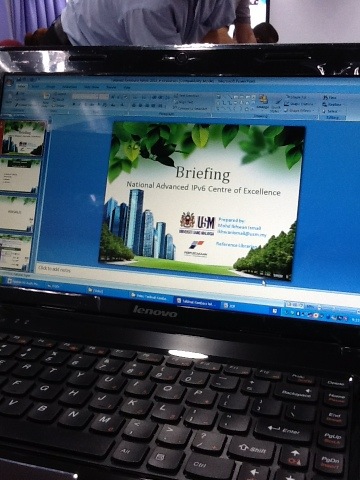28 November 2011 :
Prepared by Erra Fazira Hashim (Librarian, Customer Relation Division)
Last month, I have attended one seminar about “Knowledge Society”. For me, the seminar is very good and I get more new knowledge. Here, I would like to share several indicators of knowledge society. An overview, knowledge society is all about creating, sharing and using knowledge to bring prosperity and sense of well-being to its people. With this new paradigm, the information society evolves and we are now entering the knowledge society. In this relation, a number of knowledge society indicators have been developed. Here, there are few indicators can be considered to measure the knowledge society such as:
Number of educational institutions
We can see the number of educational institutions has increased from time to time. For example in Malaysia, the public university has increased from 14 universities to 22 universities. All these universities have their own specialty and uniqueness. From this growth, we know that university as a knowledge organization can contribute a new ideas or new knowledge and give a positive impact to the society. However, we must make sure that the quality of lecturers, resources to education, management and of infrastructure are improved, so that no one will deny on the quality of education.
Qualitative measurement of the use of, and access to, modern ICTs
With these modern ICTs like chat, e-mail, blog, tweeter and the most popular one is facebook, we can say that the knowledge can be created, distributed, disseminated, manipulated, used and shared in real time without time and space barriers. More people can be reached simultaneously and be exposed to more information and knowledge in an interactive way. The society is heavily reliant on ICTs and they also can build their own social authority easily and efficiently. They might be smart and proactive but on the other angle, they can become too dependent on ICTs, not proactive in manual work, naive, to spoiled, easily led to be online and they have no experience with life, which is what they need to survive.
Number of Research and Development (R&D)
R&D and higher education increasingly play a crucial role in knowledge production and innovation to meet new demands in today’s environment (Britz, Lorc, Coetzeee & Bestere, 2006). This has led to greater investment in knowledge production and innovation-led society. It’s true because we know that R&D can contribute the new knowledge and creative work in order to increase the stock of knowledge, and the use of this stock of knowledge can give big impact on social and cultural value, educational programs, political activities and economic growth. For example in library perspective, by doing research in information literacy programs, a new idea on online and interactive teaching module can be created. Findings of the research can give positive impact to the teaching, learning and research programs in the University.
Number of scientists or researchers in a country
Scientist or researcher is a person who does research, the search for knowledge or in general any systematic investigation to establish facts. They are also engaged in a continuous learning process involving the recombination of codified information and tacit knowledge to generate new knowledge (Mansell & Wehn, 1998). With this regard, that’s why number of scientists or researchers can be considered one of the indicators for knowledge society.
Number of patents filed in a country
A patent is a form of intellectual property. A patent gives us ownership and rights related to our invention and subsequent product(s). A patent protects our invention so that others can’t create, market or sell the product without our expressed consent (Ballew, 2011). Here can be concluded that one way to know the creation of new idea or knowledge is from the intellectual property or this invention and they are listed in patent. In patent no duplicate of idea or invention and information in patent can be trusted and reliable. In addition, patent also shows the development of knowledge and in line with knowledge society.
Number of articles published in highly ranked scholarly journals
Articles published in highly ranked scholarly journals are one evidence to indicate the proliferation of knowledge. They are widely used in academic circles and one of the research evaluation tools in all universities in the world. The general purpose of this is to measure the university productivity and quality. This is also one of the medium which knowledge can be shared, disseminated and finally gives influence to the knowledge society.
From the analysis, it can be concluded that development of knowledge society depends, to a large extent, on developments in socioeconomic sectors, such as education, R&D, ICT, telecommunication, and the media. Information and knowledge bring phenomenal power, not only for economic reasons, but for achieving a desired quality of social, cultural, and political life. But one issue need to give attention with this development is our society can become ‘media-obsessed’ or ‘sms native’. They don’t have a quality of life, everything in shortcut way and highly dependent on these media (especially computer, internet, television and cellular phones). Media saturation can appear to have an adverse effect on knowledge society. So these worrying trends need to be controlled and necessary plan and action should be taken for sustainable development of society.
References
Bhargava, P. M. (2007). How to make India a knowledge-based society. Futures, 39,
997–1007. Retrieved November 1, 2011, from ScienceDirect Database.
Britz, J. J., Lorc, P. J., Coetzeee, I. E. M., & Bestere, B.C. (2006). Africa as a knowledge
society: a reality check. The International Information & Library Review, 38, 25–40. Retrieved November 1, 2011, from ScienceDirect Database.
Mansell, R., & Wehn, U. (Eds.). (1998). Knowledge societies: information technology
for sustainable development. UK: Oxford University Press.
Available from Google Books.
Norsiah Abdul Hamid & Halimah Badioze Zaman. (2008). Preliminary study on knowledge
society criteria and indicators: a cognitive informatics approach. Paper presented at
Information Technology International Symposium, 2008 (ITSim 2008). Retrieved
November 1, 2011, from IEEExplore Database.









 22:26
22:26
 Library4u
Library4u




























